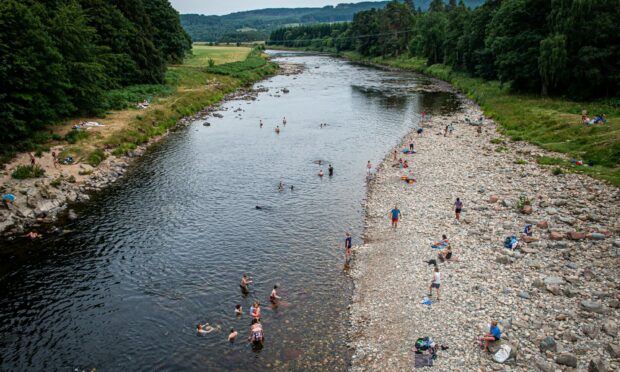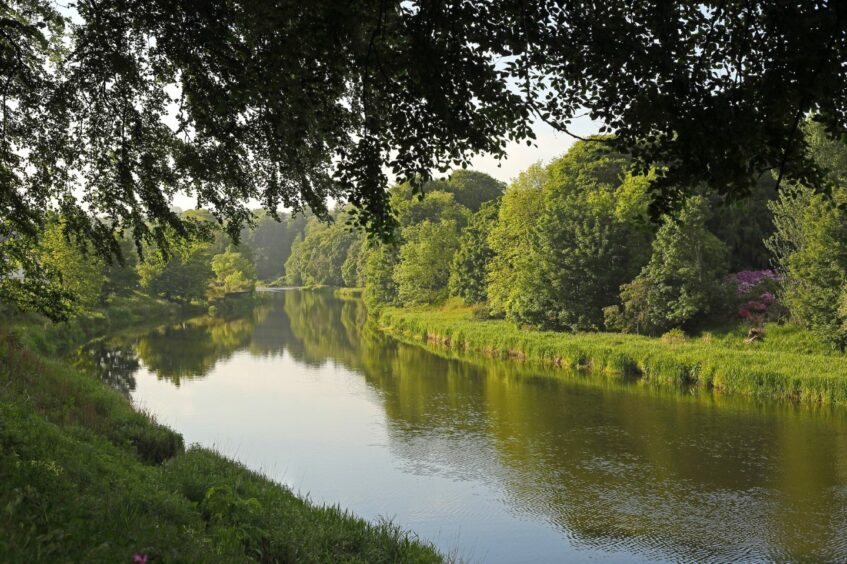Following a week of record-high temperatures and dry weather, the north-east remains at an increased risk of water scarcity.
A report from the Scottish Environment Protection Agency (Sepa), issued today, says most of the east coast is now at alert level or levels that are so scarce they are described as “moderate”.
Temperatures in Aberdeenshire hit as high as 31C over the past week. The dry, hot weather has led to low river levels in the area.
The River Don area has been raised to moderate scarcity.
Last month, areas in the east were raised to alert level, with the agency warning that water scarcity would be a “growing threat” if the dry weather continued.
Advice has been issued to businesses that remove water to only do so when “absolutely necessary” in areas of moderate scarcity.
Operations should be staggered and water removal should be carried out at night. The volume of water removed or the duration of work should also be reduced.
Some businesses are being urged to suspend abstractions temporarily.
Sepa has warned if the water scarcity risk reaches significant further restrictions on water removal will be considered.
‘A very real threat’
Sepa is monitoring the situation and coordinating steps to manage water resources in line with Scotland’s National Water Scarcity Plan.
Jennifer Leonard, Sepa’s senior water and land manager, said: “Water scarcity is a very real threat as a result of climate change. It is also the result of long-term weather deficit and below-average rainfall, and although some rain is forecast, it is unlikely there will be enough to improve conditions.”
She explained Sepa plans to work with businesses to plan water usage to preserve the vital resource. This will protect Scotland’s rivers and lochs but also minimise business risks as well.
Ms Leonard added: “In the meantime, we stand ready to offer advice and support to businesses affected by the current conditions.
“Whilst our first aim is always to help people do the right thing, we can hold to account those who deliberately fail to comply with their legal responsibilities when abstracting water from the environment.”


Conversation